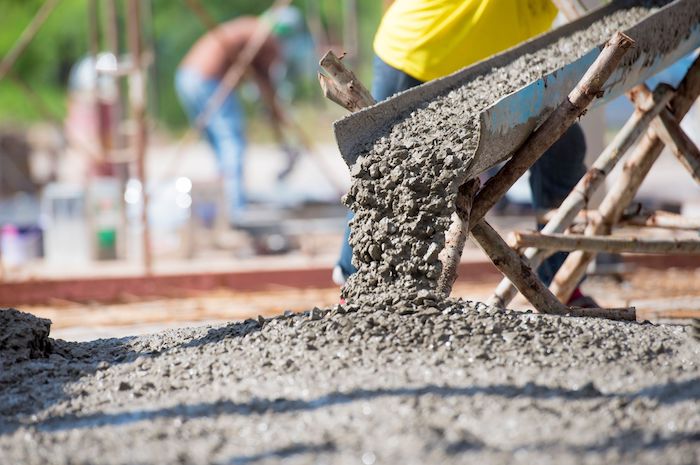
When building your business, every decision matters, especially when selecting the right materials for your workplace. Imagine establishing a company that not only excels in the market but is also resilient enough to withstand unpredictable weather.
Choosing durable, adaptable, and weather-resistant materials is essential for withstanding the harshest storms and ensuring effective construction materials quality control, making a worthwhile investment in your business.
1. Vinyl
One top contender is vinyl, the jack-of-all-trades in the construction material world. This material is renowned for its durability, resistance to water and harsh temperatures, and anti-abrasion properties. Properly installed vinyl surfaces can withstand the most brutal storms while maintaining an attractive appearance.
Oracal 651 is a great option for many outdoor applications and an example of hardy vinyl suitable for your business. Siding, windows, flooring, and water pipes are commonly made of vinyl.
It also comes in many colors, allowing you to choose a shade you prefer to keep your structure aesthetically pleasing while maintaining stability during extreme weather.
2. Concrete
Concrete is one of the most enduring weather-resistant materials, known for its toughness and adaptability. It’s a staple in the construction industry as it can endure heavy rains and high winds and even resists fire. As a result, many parts of a structure have concrete as its base material.
Furthermore, concrete also acts as an insulator, making it ideal for keeping interiors cool in summer and warm in winter. Many businesses utilize concrete in their office buildings for these reasons alone. With its exceptional durability, concrete provides stability even in areas often struck by natural disasters.
3. Steel
The strength and resilience of steel make it a compelling choice for structures that need to endure intense weather conditions. Unlike organic materials, steel is impervious to rot and won’t warp under the pressure of heavy winds. You’ll often find steel used for doors, siding, and roofing.
Furthermore, with proper treatment, steel can resist corrosion, providing a long-lasting investment for your business. Additionally, some variants of steel may also be fire resistant, making them perfect materials for companies located in fire-prone areas.
The benefits of steel in construction go beyond its flexibility and durability. Many companies are turning to this material due to its environmentally friendly properties. Steel is derived from recycled iron ores and scraps and can be recycled multiple times. Therefore, eco-conscious businesses may find using steel a viable investment.
4. Brick
A classic yet sturdy choice, brick offers excellent insulation if you prefer an alternative to concrete. It’s ideal for reducing the strain of temperature fluctuations on your office building. Hence, businesses in locations with harsh winters usually use bricks in their structures.
Not only does brick withstand the ravages of wind, rain, and snow, but it also requires minimal maintenance. You can maintain your business structure’s appearance with minimal effort, as damaged brick is easily replaced after a storm.
Bricks are also fire-resistant. This material can protect buildings from severe fire damage while preserving its form. If you have a budget and want ample protection from the weather, brick is a great building material to consider.
5. Wood
While wood might not be the first material that springs to mind when you think of weather resistance, don’t be too quick to dismiss it. There’s an excellent reason why most construction companies still use wood in many building projects.
However, wood isn’t always water or fire-resistant. So, it’s normal to see it paired with other materials like concrete or treated with preservatives to increase its lifespan.
Cedar, redwood, and teak are examples of wood types that naturally resist rot and insect damage. And with the proper treatment, wood can weather the elements gracefully, lending a rustic appeal to your business.
6. Stone
Last is stone, which is known for its unmatched durability. Stone is one of the most weather-resistant materials used in construction. It effectively resists diverse weather conditions like strong winds, intense sunlight, and heavy rain. Plus, with a variety of types and finishes available, stone adds an element of sophistication to your business’s aesthetics.
Structures incorporating stone may also feature stone veneers on their exteriors. This material is a thin layer of stone made of limestone, granite, or marble. Due to it being an equally fantastic insulator, stone can also warm up a building during cold, snowy weather.
Takeaway
Selecting suitable weather-resistant materials for your business is no small feat. It requires a deep understanding of each material’s strengths, weaknesses, and aesthetic appeal. Your choice should also reflect the unique needs and style of your business.
So, whether you’re starting a new venture or revamping an existing one, always opt for durable and aesthetically pleasing materials. After all, the future of your business hinges on the strength of the materials you choose today.
